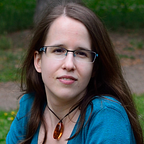LATA 2020 & 2021 in Milan
It has been almost two years since I was at an in-person conference. I attended a few online ones, but I do not count them because the experience was always not fully there for me. I like to talk with people face to face, you know. And the coffee is also a nice bonus. But jokes aside, I am excited to tell you more about this conference, because it was a great experience and I think more people should know about it.
LATA 2020 should be held in March 2020, and it was one of the first conferences that had to be postponed due to the Covid pandemic. Luckily, this year, we could finally meet in person at the University of Milano-Bicocca, Milan. Well, partially, but I will mention it a little bit later.
Because, even though the conference was the main reason for my travel, I cannot mention at least a few notes about the city in which LATA was held.
Milan is a beautiful city in Italy, well known for the fashion, architecture, and cuisine, not necessary in this order. This was my first time visiting Milan and Italy overall, but I already plan to revisit this beautiful city.
If I could pick one recommendation, besides the apparent cathedral Piazza Duomo and Scala Opera House, I would really recommend visiting the Monumental Cemetery. Yes, you read right, a cemetery. I know this is not a typical sight attraction, but it is so worth it. I have never in my life saw something so monumental (hence the name) and extraordinary. The cemetery is enormous, full of breathtaking sculptures and tombs that tell unique stories about people from Milan history.
And because the Italian cuisine is so iconic, I had to make restaurant recommendations as well. If you are looking for the experience of a traditional Italian restaurant, San Michele is a good choice. For a more luxurious experience, SottoSopra is a lovely restaurant where people organizing the conference invited us for dinner.
LATA
International Conference on Language and Automata Theory and Applications, or LATA, in short, held 14th and 15th year in combined form — in the presence and online as well.
I was lucky enough to be able to travel to Italy, but most of us — I am guessing around 70%, joined the conference via online stream.
That caused the number of presence audience to be smaller than I am used to, but I could connect with people more, and I had several fascinating discussions on research and other topics. And I cannot express how much I missed these conversations.
Each day, several blocks of talks were given by invited lectures or authors of accepted papers from this and last years. These papers can be found online: LATA 2020 and LATA 2021.
From invited talks, I would like to mention two I liked the most. The first of them was The New Complexity Landscape around Circuit Minimization by Eric Allender, which you can find in written form here. What I found the most interesting is that if MSCP (Minimum Circuit Size Problem) is easy, then there are no cryptographically secure one-way functions. This would undoubtedly have a significant impact on the whole field of computer security and beyond. Some, like Santhanam, even assumes that MSCP is hard on average in this sense if and only if cryptographically secure one-way functions exist. Overall interesting topic, even if you are not interested in topics of completeness, hardness, or reducibility.
The second interesting talk was This and How to Prove that a Language is Regular or Star-free? by Jean-Éric Pin, available here. I am working with regular languages a lot in my research, and it was an overall exciting experience because Mr. Pin is a well-known name in the community and his talk was pleasant to watch. His new book Handbook of Automata Theory came just this month, and I am looking forward to reading it.
From other authors, I liked the talk Usefulness of Information and Unary Languages by Šimon Sádovský, and Sequentiality of Group-weighted Tree Automata by Frederic Dörband. But there were many more very interesting talks.
LATA 2020 & 20201 was an amazing experience overall, and I hope that we can have more of these in the near future. The situation in Europe, but also in the world, is not very clear. The pandemic is still with us. I hope the situation will get better, and we will have more opportunities to meet with other researchers in real life and talk about our research, our lives, and our beliefs. And to get some good coffee as well, of course.
Note: I would like to thank the Department of Information Systems at the Faculty of Information Technology, the Brno University of Technology for providing financial support that allowed me to visit this great conference.
VGhhbmtzIGZvciByZWFkaW5nLCBhbmQgc2VlIHlvdSBsYXRlciE=
